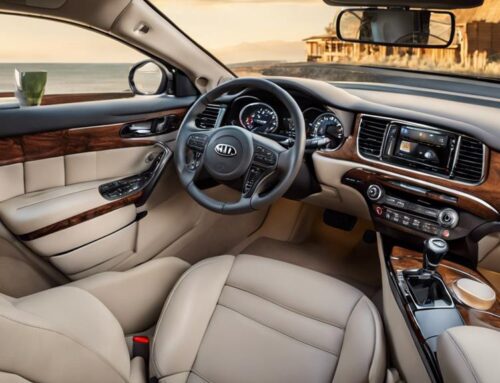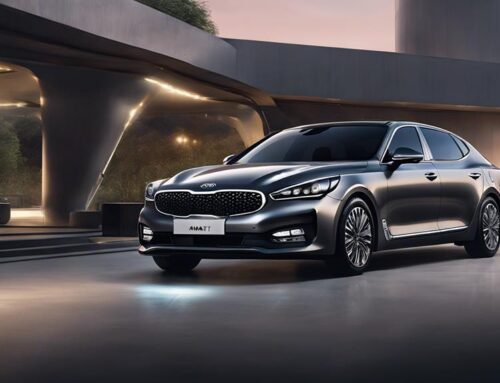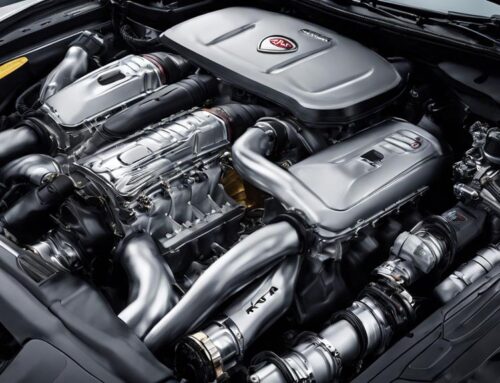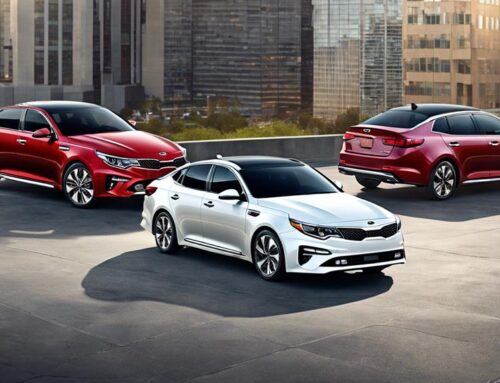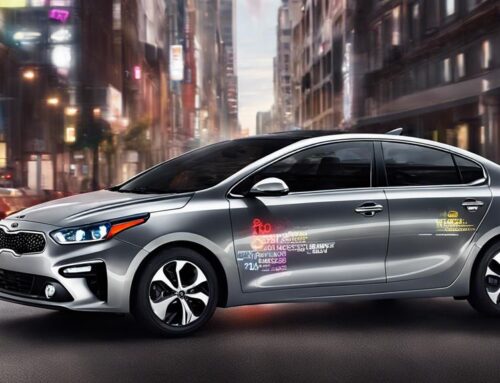Upgrading from standard locks to high-security locks can be worth it for improved protection and peace of mind. High-security locks offer superior materials, better resistance to tampering, and advanced features like drill resistance and restricted key duplication. While they cost more upfront, typically between $100 and $500 plus installation, they reduce the likelihood of break-ins and the need for frequent replacements. Standard locks, costing $20 to $100, provide basic security but fall short against sophisticated intruder techniques. If you prioritize long-term safety over initial savings, high-security locks are a smart investment. Curious about installation and maintenance tips?
Key Takeaways
- High-security locks offer superior protection against picking, drilling, and brute force attacks compared to standard locks.
- The higher cost of high-security locks is offset by their long-term durability and reduced need for frequent replacements.
- Restricted key duplication in high-security locks enhances control over access, limiting unauthorized entry.
- Professional installation and maintenance of high-security locks ensure optimal performance and extended lifespan.
- The presence of high-security locks acts as a strong deterrent to potential intruders, providing better peace of mind.
Key Differences
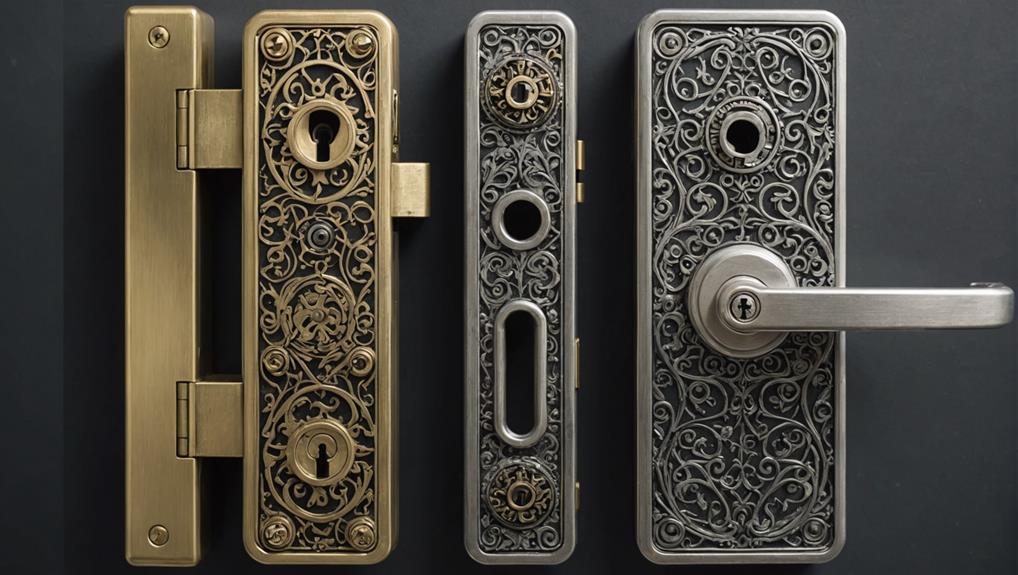
When comparing high-security locks to standard locks, the key differences are immediately apparent. You'll notice that high-security locks are designed with advanced mechanisms to prevent unauthorized access.
In a lock comparison, high-security locks boast features like drill resistance and complex keyways, making them a tougher challenge for intruders. High-security locks often use superior materials and design elements that are specifically engineered to enhance their durability and resistance to tampering. According to Understanding High-Security Locks, these features considerably reduce the likelihood of successful break-ins.
If you're someone who values the safety and well-being of others, understanding these lock security benefits is essential. High-security locks vs standard locks reveal the former's superior ability to resist picking, bumping, and other common break-in methods.
Standard locks, on the other hand, often succumb to these techniques, leaving properties vulnerable.
Moreover, the high-security locks offer you peace of mind, knowing you've taken an extra step to protect what matters most. They're not just about keeping intruders out; they're about creating a secure environment for those you care about.
By choosing high-security options, you're making a statement that safety is a priority.
In essence, a lock comparison shows that the investment in high-security locks pays off in the long run. They provide enhanced protection, ensuring that your effort to serve others by safeguarding their space isn't in vain.
Features of High-Security Locks
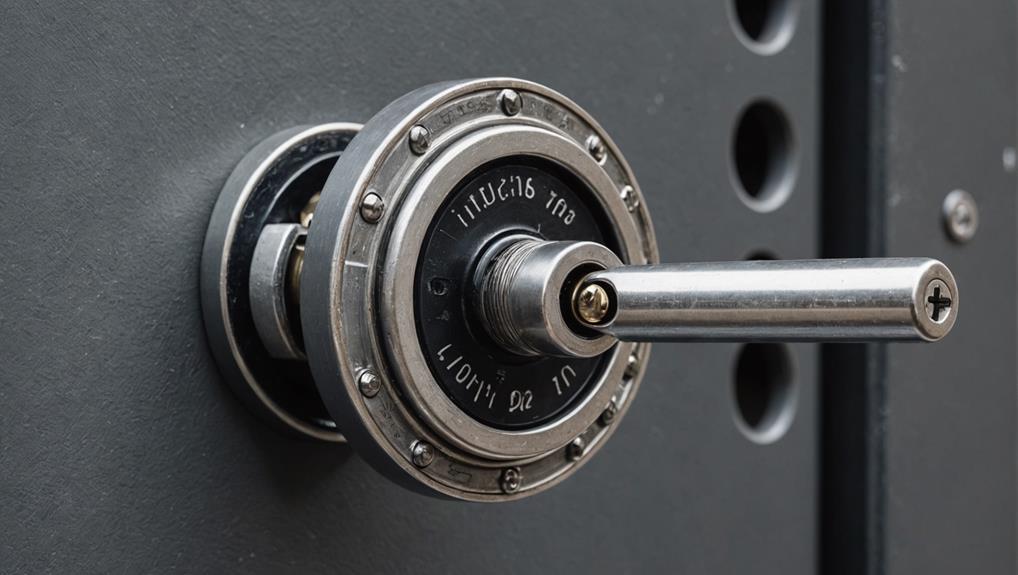
When you choose high-security locks, you're investing in advanced lock mechanisms that offer superior protection.
These locks are designed with enhanced tamper resistance, making it extremely difficult for intruders to break in.
Additionally, high-security locks often include features like drill resistance and restricted key duplication.
You'll find that this added layer of security is well worth the investment for peace of mind.
For more insights on the benefits and features of these locks, check out essential high-security locks designed specifically for residential use.
Advanced Lock Mechanisms
Unlike standard locks, high-security locks incorporate advanced mechanisms that offer superior protection against unauthorized access.
If you're looking to serve your community by enhancing security, upgrading to high-security locks is a smart move.
Here are four advanced lock mechanisms that set high-security locks apart from standard ones:
- Pick Resistance: High-security locks are designed with complex keyways and pin configurations, making them extremely difficult to pick. This guarantees that only those with the correct key can gain entry.
- Drill Resistance: These locks often feature hardened steel inserts that prevent drilling attacks. By resisting drilling, high-security locks protect against one of the most common methods of forced entry.
- Key Control Systems: High-security locks use patented key designs that can't be easily duplicated. This means you have better control over who's access, as unauthorized key copying is nearly impossible.
- Advanced Bolt Strength: The bolts in high-security locks are made from much stronger materials compared to standard locks. This added strength makes them more resistant to brute force attacks.
Enhanced Tamper Resistance
Building on the advantages of advanced lock mechanisms, high-security locks also excel in tamper resistance. When you upgrade to high-security locks, you're adding an extra layer of protection for your home.
These locks are designed to withstand various tampering techniques, including picking, drilling, and bumping. With these features, you can confidently serve your loved ones by ensuring their safety and peace of mind.
High-security locks often incorporate hardened steel inserts and complex keyways, making it extremely difficult for intruders to manipulate the lock. Additionally, some models come with anti-drill plates and reinforced bolts, considerably reducing the risk of forced entry.
While the cost of high-security locks might be higher than standard options, the investment pays off by offering superior protection.
Features of Standard Locks
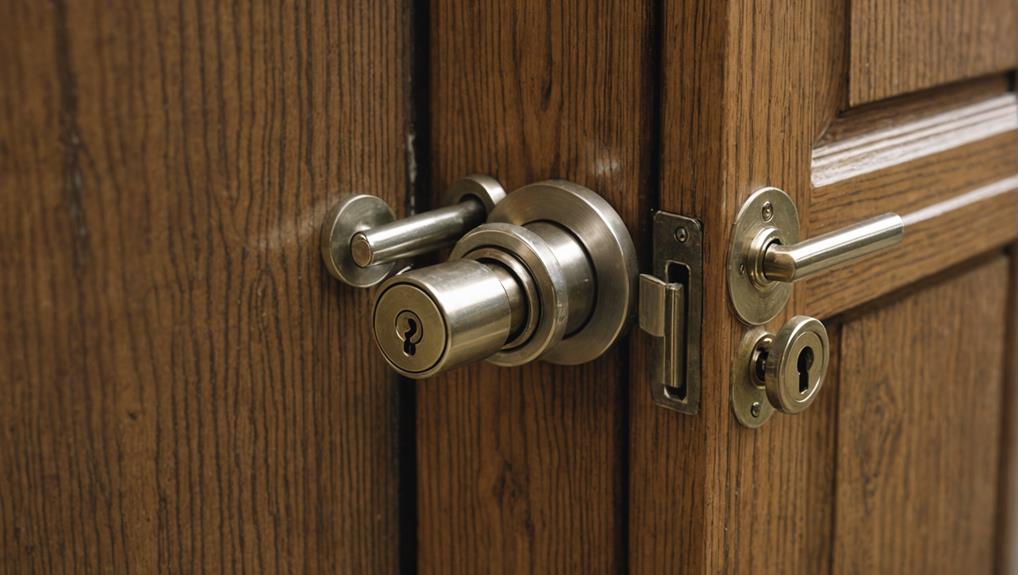
Standard locks, commonly found in most homes and businesses, offer basic security features that are straightforward and easy to understand.
These locks serve as the first line of defense for protecting your property and loved ones. While they may not have all the bells and whistles of high-security options, they do provide a reliable barrier against unauthorized access.
However, it's crucial to understand that budget vs. premium locks may vary greatly in relation to durability and advanced features.
Here are some key features you can expect from standard locks:
- Simplicity: Standard locks are easy to install and use, making them accessible for most people. You won't need specialized tools or skills to get them up and running.
- Affordability: These locks are generally more budget-friendly, allowing you to secure multiple entry points without breaking the bank.
- Availability: You can find standard locks at almost any hardware store, making them convenient to purchase and replace.
- Compatibility: They fit most standard door types and sizes, which means you can use them in various settings without worrying about compatibility issues.
Cost Comparison
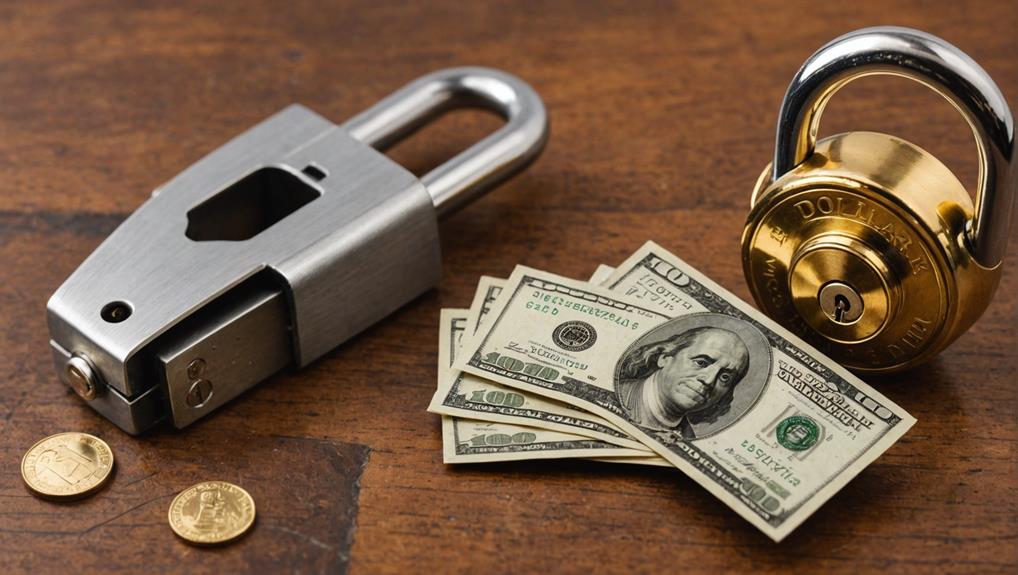
When comparing high-security locks to standard locks, you'll notice a significant difference in initial investment.
According to a thorough review of the best high-security locks, these options usually cost more upfront, but they often provide better long-term value through enhanced durability and protection.
It's essential to weigh these factors to make an informed decision about your security needs.
Initial Investment Differences
For many homeowners and businesses, the initial investment is a significant factor when choosing between high-security locks and standard locks. Understanding these cost differences can help you make a more informed decision that aligns with your budget and security needs.
- High-Security Locks: These locks can be quite an investment upfront. Typically, they range from $100 to $500 per lock, depending on the brand and technology. The higher price reflects advanced features like pick resistance, drill resistance, and restricted key duplication.
- Standard Locks: On the other hand, standard locks are more budget-friendly initially. They usually cost between $20 and $100 per lock. While they provide basic security, they lack advanced protective features, making them more susceptible to break-ins.
- Installation Costs: Don't forget to take into account installation costs. High-security locks often require professional installation, adding another $50 to $200 per lock. Standard locks are simpler, and you might even install them yourself, saving on labor costs.
- Additional Features: High-security locks often come with added features like smart connectivity and enhanced durability, which standard locks typically don't offer. These extra features can contribute to the higher initial cost but may be valuable depending on your specific security needs.
Choosing the right lock involves balancing your immediate budget with your desire to serve and protect those who depend on you.
Long-term Value Analysis
Evaluating the long-term value of high-security locks versus standard locks involves more than just the initial price tag. You need to reflect on the overall cost of ownership, including maintenance, replacements, and potential security breaches.
High-security locks often come with a higher upfront cost, but they provide better protection and longevity, reducing the chances of break-ins and the associated losses.
Standard locks might seem like a cost-effective option at first, but they often require more frequent replacements and maintenance. If a break-in occurs, the financial and emotional costs can be significant.
High-security locks, on the other hand, are designed to withstand tampering, picking, and forced entry, offering peace of mind and a reduction in potential future expenses.
Think about your community or the people you're serving. Investing in high-security locks can mean fewer disruptions and a safer environment for everyone.
When you weigh the potential costs of security breaches and the ongoing maintenance of standard locks, the long-term value of high-security options becomes clear.
Security Concerns
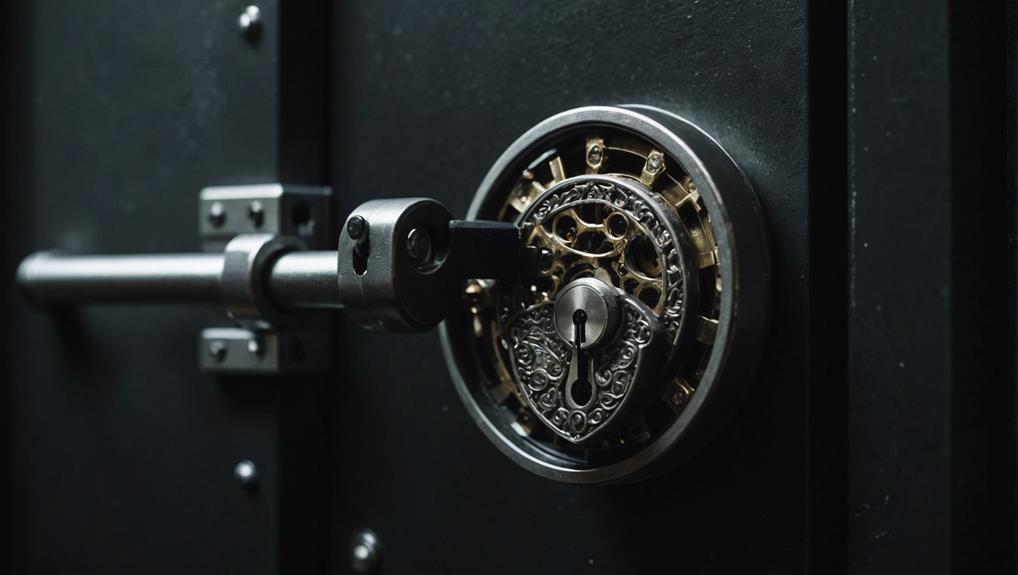
Why should you be concerned about the security of your locks? For starters, the safety of those you serve—whether it's family, customers, or community members—depends on it. A standard lock might seem sufficient, but it's often easier for intruders to bypass. High-security locks offer enhanced protection, giving you peace of mind and ensuring those you care about are safer.
According to The Importance of High-Security Locks for Your Home, these types of locks are essential for protecting residential properties from break-ins.
Consider these points:
- Resistance to Picking and Bumping: High-security locks are designed to resist lock-picking and bumping, common techniques used by intruders to gain entry quickly and quietly.
- Durability: These locks are built with stronger materials, making them more resistant to physical attacks like drilling and forceful entry.
- Key Control: High-security locks often come with restricted keyways, meaning only authorized locksmiths can duplicate the keys, reducing the risk of unauthorized copies.
- Deterrence Factor: The mere presence of a high-security lock can deter potential intruders, as they're likely to move on to easier targets.
Installation and Maintenance
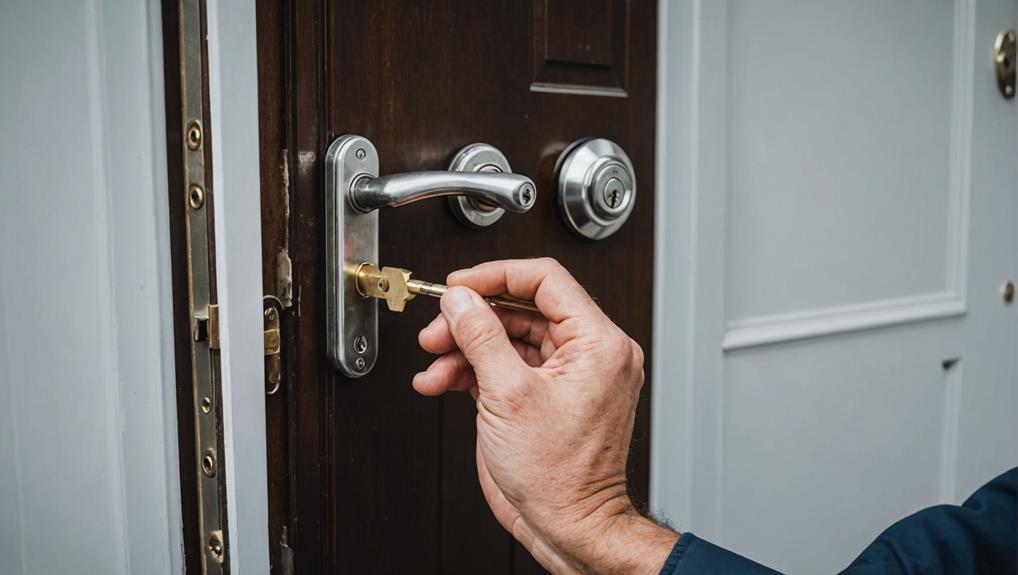
While the benefits of high-security locks are clear, properly installing and maintaining them is equally important to guarantee they perform at their best. When you decide to upgrade, professional installation is essential. High-security locks have complex mechanisms that provide enhanced protection, but improper installation could compromise their effectiveness.
By hiring a certified locksmith, you confirm that the lock is fitted correctly, maximizing its security features. For a step-by-step guide to installing high-security locks, you can refer to this resource.
Maintenance is another vital aspect you shouldn't overlook. High-security locks require regular upkeep to keep their advanced features functioning smoothly. Make it a habit to inspect your locks periodically. Look for signs of wear and tear, and verify that the key turns smoothly without resistance.
Lubricate the lock with a graphite-based lubricant to prevent internal components from sticking. Additionally, keep an eye out for any tampering signs. High-security locks are designed to resist tampering, but it's still wise to stay vigilant.
If you notice anything unusual, contact your locksmith immediately. Regular maintenance and prompt attention to any issues will extend the life of your high-security locks and confirm they provide the protection you and those you serve deserve.
Making the Right Choice
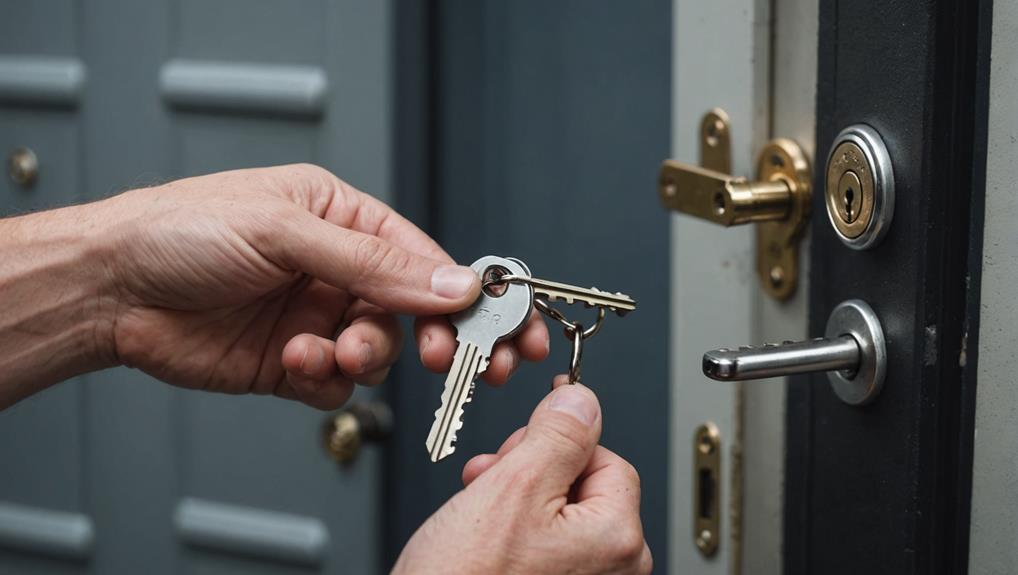
Choosing the right lock can feel overwhelming with so many options available. To make the best choice, focus on your unique needs and priorities.
Are you protecting a family home or a community center? Each scenario requires different considerations. For instance, understanding the best locks for residential properties can be vital in making an informed decision.
Here's a simple guide to help you decide:
- Assess Security Needs: If you're safeguarding sensitive areas or valuable items, high-security locks are essential. Conversely, standard locks may suffice for less critical spaces.
- Evaluate Budget: High-security locks are more expensive. Weigh the cost against the value of what you're protecting. Sometimes, the peace of mind is worth the investment.
- Consider Ease of Use: High-security locks can be more complex to operate. Confirm that the people using them can do so without difficulty.
- Think Long-Term: High-security locks often last longer and resist tampering better than standard locks. If you're looking for durability and reduced maintenance, they're a smart choice.
Frequently Asked Questions
Can High-Security Locks Be Integrated With Smart Home Systems?
You're probably wondering if high-security locks can be integrated with smart home systems.
Yes, they can! Many high-security locks are designed to work seamlessly with smart home technology.
This integration allows you to control and monitor your locks remotely, adding convenience and an extra layer of security.
Are High-Security Locks Environmentally Friendly?
You might wonder if high-security locks are environmentally friendly.
These locks often use more durable materials, meaning they last longer and reduce waste.
When you choose high-security options, you're not just protecting your property; you're also making a sustainable choice.
Do High-Security Locks Offer Better Insurance Premiums?
Yes, high-security locks can offer better insurance premiums.
When you upgrade to high-security locks, you're not just protecting your property but also showing insurers you're serious about security. This can lead to lower premiums as insurers see reduced risk.
Plus, by ensuring better protection, you're serving your community by potentially deterring crime and promoting safety.
How Do High-Security Locks Impact Property Resale Value?
High-security locks can positively impact your property resale value.
When potential buyers see you've invested in robust security, they feel more confident and assured. This added sense of safety can make your property more attractive, potentially speeding up the sale process.
Plus, the peace of mind you provide to future homeowners showcases your thoughtfulness and attention to detail, making your property stand out in a competitive market.
Are There Aesthetic Options Available for High-Security Locks?
Absolutely, there are aesthetic options available for high-security locks.
You can find designs that match various styles, from modern to classic, ensuring your property remains visually appealing.
By offering these choices, you're not only securing your clients' properties but also enhancing their overall satisfaction.
It's all about combining safety with elegance, helping others feel protected without compromising on style.
Conclusion
In the end, upgrading to high-security locks can offer you peace of mind and enhanced protection for your property. While they might be more expensive and require professional installation, the added features and superior security make them worth considering. Standard locks may suffice for basic needs, but if you're concerned about break-ins, opting for high-security locks is a smart move. Weigh your priorities and budget, then make the choice that best fits your needs.


